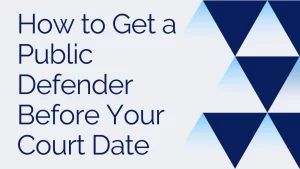What Happens the First Time You Go to Court for Truancy
Truancy, defined as excessive unexcused absences from school, can result in legal charges and court intervention if not adequately addressed. If your child has missed a significant amount of school, you may receive a truancy petition ordering you to appear in court. This article explains what to expect at your first truancy court hearing.
Background on Truancy Laws
Before diving into the court process, it helps to understand some basics about truancy statutes.
Definition of Truancy
Most states define truancy as a certain threshold of unexcused absences, such as 10 days in a school year. The exact definition can vary between school districts.
Causes of Truant Behavior
There are many reasons why students miss school, from bullying to transportation issues. Identifying and addressing the root causes of truancy early on is important.
Truancy Laws and Court Intervention
When voluntary resolutions fail, schools can refer truant students and families to court as a last resort. Truancy hearings aim to uncover why absence problems persist and develop supervised prevention plans.
The Truancy Petition
Here’s what you need to know about the initial paperwork that starts the court process:
Who Can File a Truancy Petition
School administrators have authority to file petitions against persistently truant youth and compel parents to appear in court through subpoenas.
Contents of the Petition
The document states the number of unexcused absences. It orders the student and parent/guardian to appear at a hearing on a specified date.
Serving the Petition
You will receive the petition via mail or personal delivery by a law officer several weeks before your hearing date. This gives you time to prepare.
Preparing for Court
To get ready for court, be sure to:
Understand Your Rights
You and your child have basic rights during truancy proceedings, like having an attorney present. The judge will explain these rights to prevent coercion.
Consult with an Attorney
Speaking with a family or education lawyer can clarify what to expect in court, help negotiate alternatives to fines, and assist you in getting services.
Gather Documentation
Bring evidence to court explaining your child’s absences, such as doctor’s notes. Proof that you have taken steps to improve attendance will show the judge you take truancy seriously.
The Initial Truancy Hearing
At the hearing, you can expect the following:
What to Expect in Court
Hearings are typically informal meetings in the judge’s chambers including you, your child, school officials, a court representative, and officers such as a probation officer or social worker.
Parents/Guardians Must Attend
It is vital that at least one parent or legal guardian comes to the hearing. Failure to appear may result in sanctions like contempt of court charges.
Answering the Truancy Petition
You will have a chance to provide your explanation and reasoning for the missed school days stated in the petition. Bring supporting evidence.
Possible Outcomes
The judge can issue truancy prevention orders, assign a case worker, impose fines, or set dates for subsequent review hearings to check attendance progress. Jail time is rare at initial hearings.
Truancy Prevention Measures
Some common truancy prevention orders include:
Attendance Contracts
Formal signed agreements detailing consequences for additional unexcused absences.
Counseling and Other Services
Referrals for family therapy or mentoring to tackle personal obstacles causing truancy.
Fines and Fees
Monetary penalties levied on parents. These range from $25 to over $500 depending on the state and severity. Courts can approve payment plans for financial hardship cases.
Ongoing Court Involvement
Follow Up Hearings
The judge will schedule periodic attendance check-ins, usually every 1-2 months after the initial hearing. Bring current attendance records. Progress could lead to case dismissal while decline prompts stricter intervention.
Contempt of Court for Noncompliance
Failure to follow court orders like attending counseling or obeying attendance contracts constitutes contempt. Penalties might include higher fines, community service hours, or short jail stays.
Getting Help with Truancy
If you are struggling to get your child to school, assistance is available:
Community Resources
Check out local youth services, parenting classes, health clinics, and nonprofits. Their counselors can be powerful truancy allies.
Tips for Parents
Positive reinforcement, clear communication of attendance expectations, appropriate consequences, openness, and modeling good behavior help reduce truancy over the long term.
Conclusion
The prospect of going to truancy court is scary for families. By understanding the standard proceedings, consulting with counsel, providing documentation, following court stipulations, and tapping into community offerings, you and your child have the highest chance of case dismissal and avoidance of recurring troubles down the road. With teamwork, truant youth can get back on track to being students in good standing.
Key Takeaways
- Truancy petitions formally order students and parents to appear before a judge to explain chronic unexcused absences.
- Consultation with an attorney and evidence backing up your narrative is highly useful prior to the court date.
- Judges determine prevention plans and consequences like fines based on testimonies and overall impressions of effort to curb truancy.
- Ongoing hearings spaced 1-2 months apart track attendance progress with additional orders if noncompliance persists.
Summary
- Truancy laws vary by state but generally kick in after a certain threshold of unexcused absences
- Students and parents have certain rights, like being represented by a lawyer
- At the first court date, charges are presented and a plea is entered
- The judge hears arguments and evidence then decides on consequences
- For first offenses, diversion programs with community service etc. are common
- Repeat truancy can result in fines, juvenile detention, or grade retention
- Support services focus on identifying and addressing root causes
- Open communication and compassionate solutions are important
- Getting back on track with school attendance is the priority
FAQs
Do we need legal representation for a truancy hearing?
While not legally mandatory, seeking counsel from an education attorney or public defender can prove extremely valuable for understanding proceedings, upholding your rights, negotiating alternatives to fees based on income level, and following up with enforcement of services.
What paperwork should we bring to court?
In addition to official attendance records and absence notes from your child’s school, provide evidence like doctor’s letters explaining missed days. Proof of steps addressing barriers, such as therapy intake forms or completed parenting classes, demonstrates self-advocacy to the judge.
Can fines be waived based on family finances?
Yes, judges have power to issue alternate orders besides monetary penalties or customize payment plans if you prove limited means. Be ready to supply financial documentation like tax returns and pay stubs.
How soon could jail time happen?
Most states reserve jail or juvenile detention as a “last resort” penalty. It typically occurs after multiple noncompliance rulings with truancy orders over an extended timeframe, though exact policies vary. Stress this extreme measure in serious chats with reluctant students.
Is homeschooling an option to avoid court involvement?
Establishing a certified home education program approved in your state halts truancy proceedings, provided annual academic progress assessments stay on track. Discuss curriculum and teacher supervision details with your school district.







